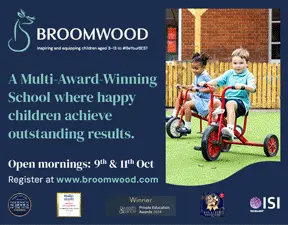Lovington Church of England Primary School
Lovington, Castle Cary, BA7 7PX
Lovington, Castle Cary, BA7 7PX
Pupils
51
Ages
4 - 11
Gender
Co-educational
Type
Voluntary Controlled School
Head Teacher
Mr Graeme Wilson
Lovington Church of England Primary School is a small school with a current roll of 51 students aged between 4 and 11. The academic performance data shows that there is room for improvement, with N/A as the measured reading progress and 0 as the lower and upper confidence limits. Similarly, the writing and maths progress measures are also at 0, indicating that some students were absent or unable to access the tests.
In terms of pastoral care, Lovington Church of England Primary School strives to support the well-being of all students. The small class sizes allow for personalized attention and support, creating a nurturing atmosphere for the children.
Extra-curricular activities are limited due to the school’s size, but efforts are made to provide a variety of options for students to explore their interests outside of the classroom.
For students with Special Educational Needs, the school offers tailored support and interventions to help them reach their full potential.
Overall, Lovington Church of England Primary School provides a caring environment for students to learn and grow. With a focus on individual well-being and support, the school aims to help each child thrive academically and emotionally.
In conclusion, Lovington Church of England Primary School is a small but nurturing school that prioritizes the well-being of its students. With a focus on personalized care and support, the school aims to help each child reach their full potential academically and emotionally.
Lovington Church of England Primary School in Somerset underwent an inspection on 12 and 13 October 2023, resulting in an overall effectiveness rating of inadequate. The quality of education was also rated inadequate, while behaviour and attitudes, as well as personal development, were deemed to require improvement. Leadership and management received an inadequate rating as well, marking a significant decline from the previous inspection, which rated the school as good.
The inspection revealed that pupils are not receiving an acceptable standard of education. The curriculum lacks ambition and is poorly planned, failing to account for pupils' starting points and levels of understanding. Consequently, pupils do not learn and retain knowledge effectively, which hampers their ability to build essential skills for future success. Despite these educational shortcomings, pupils enjoy attending school, engaging positively with peers during social activities and play. They share resources and demonstrate respectful interactions, with rare instances of derogatory language. However, staff expectations regarding pupils' attitudes towards learning are not sufficiently high, leading to disruptions in the classroom.
The school organizes community events, allowing pupils to contribute positively, such as serving refreshments to parents and visitors. The school's values are reflected in its strong ties with the local church, and pupils appreciate participating in seasonal services like the Harvest Festival. However, the curriculum does not adequately identify the essential knowledge pupils need across various subjects. Some staff lack the necessary subject expertise to effectively plan and teach, resulting in a failure to address gaps in pupils' knowledge and misconceptions.
Pupils with special educational needs and disabilities follow a limited curriculum, which does not provide the depth of knowledge required for their future learning. Staff are not well-informed about the needs of these pupils, leading to inadequate support. While children in Reception learn to read through a phonics curriculum, they lack sufficient opportunities to practice and consolidate their understanding. The reading materials do not consistently align with their phonics knowledge, and some staff struggle to support pupils in developing reading fluency and confidence.
Pupils are encouraged to read for pleasure outside of school, and staff share stories with them. However, the school does not ensure that pupils are exposed to a diverse range of texts. Pupils engage with topics that promote their wider development, learning about positive relationships and safety, including online safety. Yet, the school does not effectively monitor the teaching of this curriculum or assess pupils' understanding of personal development issues.
Some pupils take on leadership roles, such as worship leaders or school council members, which helps them express their views and represent their peers. They also benefit from residential visits and educational trips, but there are limited extracurricular opportunities for talent development. Governors have not provided strong oversight, failing to hold leaders accountable or support staff well-being. Most staff, including senior leaders, are new this academic year and are motivated to improve the school's quality of education. However, their efforts are still in the early stages, with little impact on pupils' learning experiences.
The safeguarding arrangements at the school are effective. To improve, the school must develop a well-planned and ambitious curriculum, ensure staff have the necessary subject knowledge, and provide adequate support for pupils with special educational needs. Governors need to enhance their oversight and accountability to address the existing weaknesses in the school. The school may not appoint early career teachers before the next monitoring inspection.
Last Updated: 9 December 2024
The Great British Schools Guide (published by Great British Schools Guide Limited) is currently in launch mode.
We would be grateful if you could email data@greatbritishschoolsguide.com if you find any inaccuracies or would like to update your listing. Thank you.
Comparing, saving and returning to your favourite schools is just a click away




